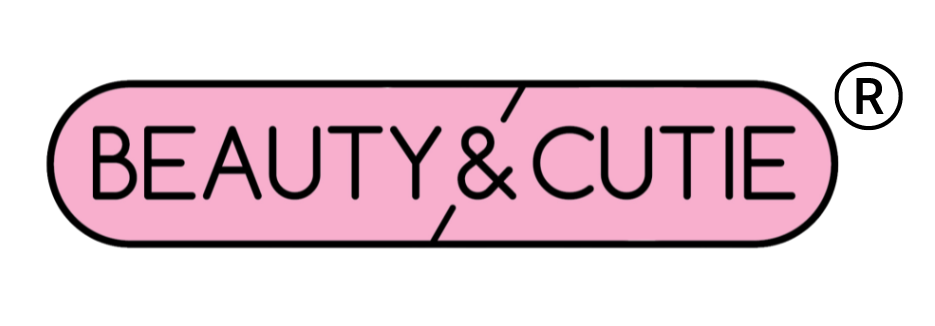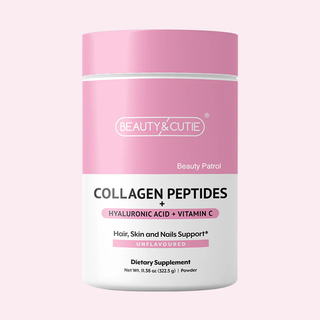Are you frustrated with slow hair growth? Have you tried every product and treatment out there, but your hair still seems to be stuck at the same length? Don't worry, you're not alone. Many women struggle with hair growth, and there can be various reasons behind it. In this article, we will explore the top 9 reasons why your hair might not be growing as fast as you'd like. From hormonal imbalances to hair care mistakes, we've got you covered. So, if you've been wondering "why is my hair not growing," keep reading to find out the answers you've been looking for.
Why Is My Hair Not Growing?
- Hormones and Imlance: Hormonal imbalances, such as thyroid disorders or polycystic ovary syndrome (PCOS), can have a on hair growth. These imbalances can disrupt the hair growth cycle and lead to slower or stunted hair growth.
- Nutritional deficiencies: A lack of essential nutrients, such as vitamins, minerals, and proteins, can affect hair growth. When your body doesn't receive adequate nutrition, it prioritizes other bodily functions over hair growth, resulting in slower hair growth or hair loss.
- Excessive heat styling and chemical treatments: Excessive heat styling, such as the use of flat irons or curling irons, and frequent chemical treatments like bleaching, dyeing, or relaxing can damage the hair shaft and hinder its growth. These practices weaken the hair and make it prone to breakage, resulting in slower hair growth overall.
- Poor hair care routine: Neglecting proper hair care can also contribute to slow hair growth. Factors such as infrequent washing, excessive brushing or combing, using harsh hair products, and not protecting the hair from environmental damage can all lead to weakened hair and hindered growth. Improper hair care is one of the most common reasons behind split ends and hair breakage.
- Stress and emotional factors: High levels of stress, anxiety, and emotional turmoil can have a direct impact on hair growth. The body's response to stress can disrupt the hair growth cycle and result in shedding or slower hair growth. Therefore, managing stress levels and prioritizing self-care is crucial for promoting
- Age: As we age, our hair growth naturally slows down. The rate at which our hair grows decreases, and the hair follicles may become thinner. This is a normal part of the aging process and can contribute to slower hair growth or thinning hair as we get older.
- Genetics: Our genetics play a significant role in determining our hair growth. Some individuals may have a genetic predisposition to slower hair growth or conditions such as male or female pattern baldness. If you have a family history of hair loss or slow hair growth, it's possible that genetics may be a contributing factor to your hair growth struggles.
- Lifestyle choices: Your lifestyle habits can impact your hair growth. Factors such as smoking, excessive alcohol consumption, and poor diet can all affect the health of your hair and hinder its growth. Smoking, for example, restricts blood flow to the hair follicles, depriving them of the essential nutrients needed for optimal hair growth. Additionally, a poor diet lacking in essential vitamins and minerals can lead to slower hair growth and weaker hair strands.
- Scalp health: The health of your scalp is crucial for hair growth. Issues such as dryness, dandruff, or scalp infections can disrupt the hair growth cycle and impede the growth of new hair. Maintaining a clean and well-nourished scalp through regular washing, exfoliation, and the use of appropriate scalp treatments can promote healthier hair growth.
How Does Exercise Support Hair Growth?
First and foremost, exercise increases blood flow and circulation throughout the body, including the scalp. The hair follicles receive more oxygen and nutrients thanks to the boost in blood flow. Additionally, exercise helps to reduce stress levels, which as mentioned earlier, can directly impact hair growth.
You can keep your hair growing cycle healthy and manage stress with physical activity. Exercise's indirect influence on health and happiness may indirectly support the growth of hair. Engaging in regular physical activity has been shown to improve immunological function, maintain healthy hormone levels, and lessen inflammatory responses. A healthy scalp is essential for strong hair growth, and these conditions help foster that.
Incorporating exercises that specifically target the scalp and promote blood flow to the hair follicles can further enhance hair growth. Scalp massages, for example, can stimulate blood circulation and improve the health of the scalp. Other exercises like yoga or Pilates that involve inversions, where the head is positioned below the heart, can also increase blood flow to the scalp.
It's important to note that while exercise can support hair growth, it is not a standalone solution for hair loss or significant hair growth issues. If you are experiencing excessive hair loss or have concerns about your hair growth, it's best to consult with a healthcare professional or dermatologist for personalized advice and treatment options.
How Can Diet Support Hair Growth?
A healthy diet plays a crucial role in supporting hair growth. Your hair needs a variety of vitamins, minerals, and nutrients to grow strong and healthy. Here are some ways in which a good diet can promote hair growth:
- Protein: Hair is made up of a protein called keratin, so it's important to include an adequate amount of protein in your diet. Good sources of protein include lean meats, fish, eggs, dairy products, legumes, and nuts.
- Omega-3 fatty acids: These healthy fats are essential for hair growth and can be found in fatty fish like salmon, mackerel, and sardines, as well as in walnuts, flaxseeds, and chia seeds.
- Biotin: Also known as vitamin B7, biotin is essential for healthy hair growth. You can find biotin in foods like eggs, nuts, seeds, sweet potatoes, and leafy green vegetables.
- Iron: Iron deficiency can lead to hair loss, so it's important to ensure you're getting enough iron in your diet. Good sources of iron include red meat, poultry, fish, legumes.
- Vitamin C: This vitamin helps in the absorption of iron, so it's important to include foods rich in vitamin C in your diet. Citrus fruits, strawberries, kiwi, bell peppers, and broccoli are all good sources of vitamin C.
- Zinc: Zinc plays a role in hair growth and repair, so it's important to include zinc-rich foods in your diet. Some good sources of zinc include oysters, beef, lamb, pumpkin seeds, and chickpeas.
- Vitamin D: Low levels of vitamin D have been linked to hair loss, so it's important to ensure you're getting enough of this vitamin. Sunlight is the best source of vitamin D, but you can also find it in fatty fish and egg yolks.
- Vitamin E: This vitamin is important for hair growth as it helps promote blood circulation to the scalp. Good sources of vitamin E include nuts, seeds, and avocado..
Why Collagen Supplements Are Essential for Hair Growth
Collagen supplements, like those available at Beauty & Cutie, are a powerful way to support hair growth from within. Collagen provides essential amino acids that aid in the production of keratin, the protein responsible for strong, healthy hair strands.
Unlike vitamins such as biotin or vitamin E, which address general deficiencies, collagen directly targets the structural needs of your hair. Since collagen production declines with age, supplementing with high-quality collagen powders ensures your body has the resources it needs for optimal hair health and growth.
For best results, pair collagen supplements with a nutrient-rich diet, regular exercise, and stress management. By combining these practices, you can enhance the benefits of collagen and achieve stronger, shinier, and healthier hair. Explore Beauty & Cutie's Collagen Powders to start your journey toward vibrant, beautiful hair.
Conclusion
Hormonal fluctuations, nutritional inadequacies, overuse of heat and chemicals on the hair, neglecting one's hair care routine, stress, aging, heredity, unhealthy habits, and poor scalp health are all contributors to delayed hair growth. Hair growth can be made healthier and more robust by being aware of these issues and taking appropriate care, nutrition, and stress management measures to address them. Although vitamins have a significant role in hair development, a balanced diet rich in different nutrients should always come first. Hair health can be supported by consuming foods high in zinc, iron, vitamin C, vitamin D, and biotin. For the best possible hair development, don't forget to lead a healthy lifestyle that includes frequent exercise and stress management.
Final Thoughts
Discover the ultimate beauty solution at Beauty and Cutie. We are experts in creating premium collagen powders dedicated to enhancing your natural beauty. Our supplement goes beyond the typical beauty product - it's a commitment to unlocking your inner radiance and unleashing your full potential. Join the countless Americans embarking on the beauty journey with Beauty and Cutie.
Sources
- https://www.mayoclinic.org/diseases-conditions/pcos/symptoms-causes/syc-20353439
- https://www.medicalnewstoday.com/articles/does-dye-damage-hair
- https://www.hims.com/blog/brushing-hair-loss
- https://medicover-genetics.com/the-genetics-of-hair-loss-alopecia-and-more
- https://www.nhlbi.nih.gov/health/heart/smoking
*These statements have not been evaluated by the Food and Drug Administration. This product is not intended to diagnose, treat, cure or prevent any diseases.


